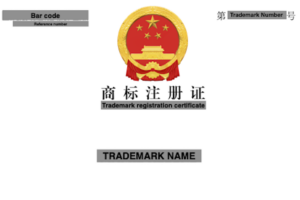
Introduction
Good news, foreign nationals who are Chinese residents are also allowed to participate to judicial auctions of properties in Shanghai, such as private properties or offices.
But how, you might think? The world of judicial auctions is often a closed one, with mostly insiders involved into it.
The purpose of this memo is to provide general information on judicial auctions in Shanghai, especially the auction process, the risks associated with such operation, and the final signature of the sales contract.
1. Auction process
a. Access to auction information
Foreign investors can search for relevant auction information, including the auction’s object, the auction time, the contact information of the auction auxiliary agencies, etc., through Taobao and the People’s Court Litigation Assets Website, or other official platform.
b. Confirmation of bidders’ qualifications
Foreign investors are required to confirm that they are qualified as bidders, to register for the bidding and pay the deposit as required. The deposit will be remitted to the designated special account for the supervision of funds for the judicial auction.
For foreign investors specifically, they need to complete the following steps when confirming whether they qualify as a bidder in a judicial auction:
- Understanding the auction notice: first, the foreign investor should read the auction notice in detail to understand the eligibility requirements for bidders. The auction notice usually lists the conditions that the bidder needs to fulfil and the documents that need to be submitted.
- Preparing identification documents: foreign investors need to prepare valid identification documents, such as passports, visas, etc. These documents need to be original or notarized.
- Providing proof of creditworthiness: the foreign investor may need to provide proof of creditworthiness to show that he/she has sufficient financial capacity and creditworthiness to participate in the bidding. This may include a certificate of deposit from a bank, a credit report, etc.
- Complying with bidding conditions: the foreign investor needs to ensure he/she meets the bidding conditions listed in the auction notice, such as age, nationality, place of residence, etc.
- Confirming the absence of prohibited circumstances: the foreign investor needs to check that he/she does not fall into any prohibited circumstances listed in the auction notice, such as a conflict of interest with the subject matter of the auction, or the existence of an offence.
- Registering for bidding: after confirming that they are qualified to be a bidder, foreign investors need to go to the designated place or online platform to register for bidding and submit relevant supporting documents in accordance with the requirements of the auction notice
Before the auction, interested buyers may consult with the auction auxiliary agencies and make an appointment to see the samples and learn about the details of the subject matter of the auction on the spot.
d. Participation in the auction
During the auction time, investors can participate in the auction through Taobao or other platforms, and bid in accordance with the set starting price and mark-up range.
e. Completion and payment
After successful bidding, the investor shall pay the transaction amount in accordance with the agreement, and the court will issue a confirmation of the auction sale, a civil judgement and other legal documents. The bidder shall handle the transfer procedures with relevant documents and complete the transfer of ownership of the auction subject matter. The deposit paid by the investor who did not win the bid will be refunded without interest and in accordance with the original payment method and original channel.
But before reaching this last step, you need to make sure the risks associated with such operation are mitigated.
2. Associated risks
Each property sale has associated risks. Here is a quick overview of the main risks you need to watch out for in terms of judicial auction.
a. Property rights risk
Before purchasing, investors need to verify the property rights’ status to ensure they are clear and free from disputes. If there are property rights issues (mortgage, pledge or seizure of the auctioned assets), it may lead to challenges when transferring the property, or worst impossibility to transfer the property.
b. Tax risk
Purchasing judicial auction assets may involve complex tax issues. The auctioned assets may have historical tax arrears, which are taxes that the original owner has not paid. Before bidding, foreign investors should conduct a thorough due diligence to understand the historical tax payment status of the auctioned assets and ensure that there are no unpaid taxes on the assets they plan to purchase.
c. Repentance risk
If an investor repudiates a successful bid, the deposit will not be refunded. Therefore, investors should fully consider their willingness to buy and ability to pay before participating in the auction.
Now that the process is clear and the risks have been identified and dealt with, you can move forward in the process and proceed the signature of the sales contract.
3. Sales contract
After the auction is completed, investors need to sign relevant documents such as the Auction Confirmation Letter with the auction auxiliary institution.
According to the provisions of the Auction Confirmation Letter, investors will be required to sign a formal Purchase and Sale Contract with the original owner of the auction target.
Even if investors successfully bid and sign the contract, they may still face risks during the execution process. For example, the seller may not be able to deliver the assets on time, or the delivered assets may not match the auction announcement. These execution risks may result in investors being unable to obtain expected asset equity or facing additional losses.
Conclusion
In conclusion, if judicial auctions in Shanghai are open to foreign nationals who are Chinese residents, they need to be equipped with the right knowledge and able to assess accurately the risks they might encounter in the process. A good way to start here might be to get the support of a reliable professional, insider to the world of judicial auctions.
***
Should you require further assistance, feel free to contact us.






